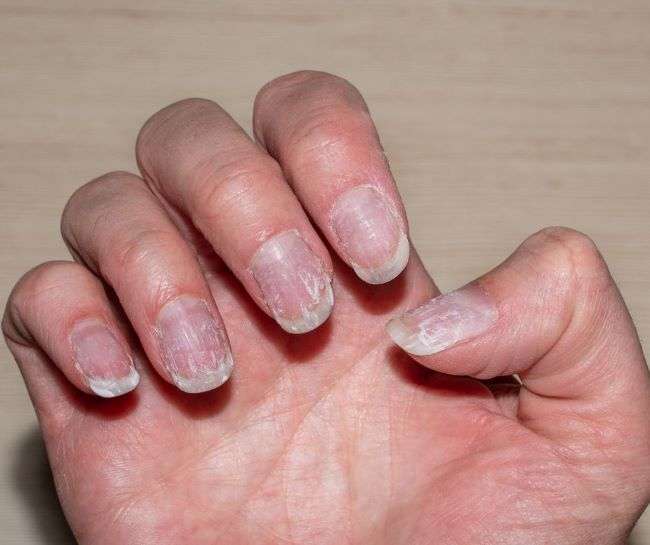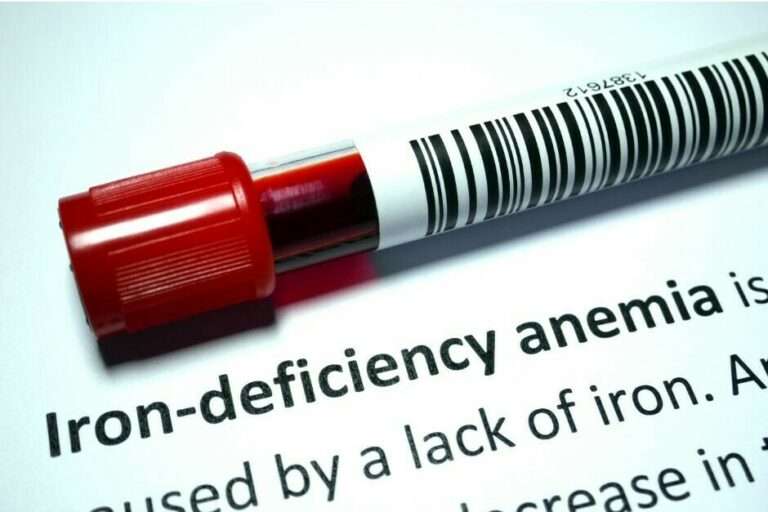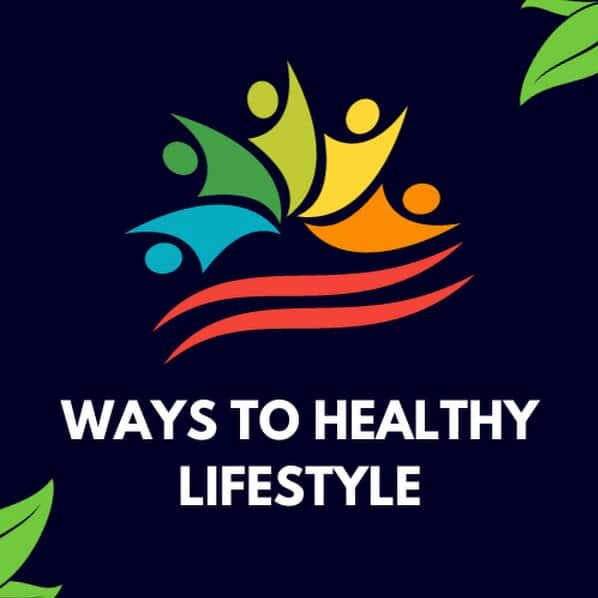Are you feeling constantly fatigued, experiencing frequent headaches, or noticing unusual changes in your body? Then you might be Iron Deficient.
Iron is an essential mineral responsible for carrying oxygen to all parts of the body, and when levels are low, it can lead to a range of symptoms that affect your overall well-being.
Low iron deficiency leads to a disease called as ‘Anaemia’. Iron Deficiency is common in womens. “The New York Times” revealed that more than a third of women under 50 are Iron-Deficient ·
The question is, how do we know we are iron deficient? It will be easier for you to understand these symptoms after reading this article.
15 Signs You Might Be Iron Deficient

1. Persistent Fatigue
Do you feel tired all the time, even after a good night’s sleep then that could be a sign of iron deficiency.
Without enough iron, your body struggles to produce hemoglobin, the protein in red blood cells that carries oxygen. So you feel tired all the time even after doing a small amount of work.
2. Weakness and Lack of Stamina
You might feel weak and lacking stamina while performing daily tasks or exercise.
3. Pale Skin
Low levels of hemoglobin can cause a pale or washed-out appearance to your skin, especially noticeable in the face, lips, gums, and inside the lower eyelids.
4. Shortness of Breath
If you find yourself getting winded easily, even with minimal physical exertion, it is an indication of inadequate oxygen delivery to your tissues due to low iron levels.
5. Dizziness or Lightheadedness
Feeling dizzy or lightheaded, especially when standing up quickly, might be a sign of reduced oxygen flow to the brain caused by iron deficiency.
6. Cold Hands and Feet
Poor circulation due to low hemoglobin levels can result in chronically cold hands and feet.
7. Brittle Nails
Do you have brittle nails? Iron deficiency can lead to brittle or spoon-shaped nails that are more prone to breaking.
8. Hair Loss
In some cases, iron deficiency may contribute to hair loss or thinning hair.
9. Cravings for Non-Food Items
If you feel an Unusual craving for non-food items such as ice, dirt, or starch then it can be because of iron deficiency.
10. Restless Legs Syndrome
Restless legs syndrome (RLS), characterized by an uncontrollable urge to move the legs, especially at night, has been associated with low iron levels.
11. Difficulty Concentrating
Reduced oxygen delivery to the brain can impair cognitive function, leading to difficulty concentrating, brain fog, or poor memory.
12. Frequent Headaches
Iron deficiency may be linked to recurrent headaches or migraines.
13. Weak Immune System
Iron plays a crucial role in immune function, so low levels may make you more susceptible to infections or illnesses.
14. Irregular Heartbeat
In severe cases of iron deficiency, an irregular heartbeat or heart palpitations may occur due to the heart working harder to compensate for decreased oxygen levels.
15. Unusual Cravings
Craving certain foods, particularly those that are not typically part of your diet, might be your body’s way of trying to obtain the nutrients it lacks, including iron.
Solutions if you are Iron Deficient
Addressing iron deficiency typically involves a combination of dietary changes, supplementation, and, in some cases, medical intervention. Here are some solutions for iron deficiency:
1. Dietary Changes
Incorporate iron-rich foods into your diet, such as beans, lentils, tofu, spinach, kale, broccoli, fortified cereals, and quinoa. Pairing these foods with sources of vitamin C, like citrus fruits or bell peppers, can enhance iron absorption.
2. Iron Supplements
If you’re unable to meet your iron needs through diet alone or have difficulty absorbing iron, your healthcare provider may recommend iron supplements. These are available over-the-counter or as prescription formulations and should be taken as directed.
3. Cooking strategies
Use cast-iron cookware for preparing meals, as cooking acidic foods in cast-iron pots can increase the iron content of the food. Avoid cooking with calcium-rich foods or beverages, as calcium can inhibit iron absorption.
4. Limiting Certain Foods and drinks
Certain substances can interfere with iron absorption. These include tea, coffee, calcium supplements, and high-fiber foods. It’s advisable to consume these items separately from iron-rich foods or iron supplements.
5. Iron Therapy
In severe cases of iron deficiency where oral supplementation is ineffective or not tolerated, intravenous iron therapy may be recommended. This involves administering iron directly into the bloodstream under medical supervision.
6. Regular Monitoring
If you are diagnosed with iron deficiency, it’s essential to follow up with your healthcare provider for regular monitoring of your iron levels. This allows for adjustments to your treatment plan as needed and ensures that iron deficiency is effectively managed over time.
7. Lifestyle Modifications
In most cases, adopting a healthy lifestyle that includes regular exercise, adequate sleep, and stress management can support overall health and may improve iron absorption and utilization.
8. Consultation with Healthcare Provider
Consult with a healthcare provider before starting any new supplements or making significant dietary changes, especially if you have underlying health conditions or are taking medications.
By implementing these solutions and working closely with your healthcare provider, you can effectively manage iron deficiency and improve your overall health and well-being.
FINAL THOUGHT
If you are experiencing several of these symptoms, it is essential to consult with a healthcare professional for proper diagnosis and treatment. Iron deficiency can usually be corrected through dietary changes, iron supplements, or, in severe cases, intravenous iron therapy.
Identifying and addressing iron deficiency early can help prevent complications and improve your overall health and quality of life.
In conclusion, if you are iron deficient, recognizing the signs of iron deficiency is crucial for maintaining optimal health and well-being. From persistent fatigue to brittle nails and restless legs, these symptoms can significantly impact daily life.
By being aware of these indicators, individuals can take proactive steps to address iron deficiency through dietary adjustments, supplements, or medical intervention as needed.
Remember, prioritizing your health and addressing iron deficiency promptly can lead to improved energy levels, cognitive function, and overall quality of life.

